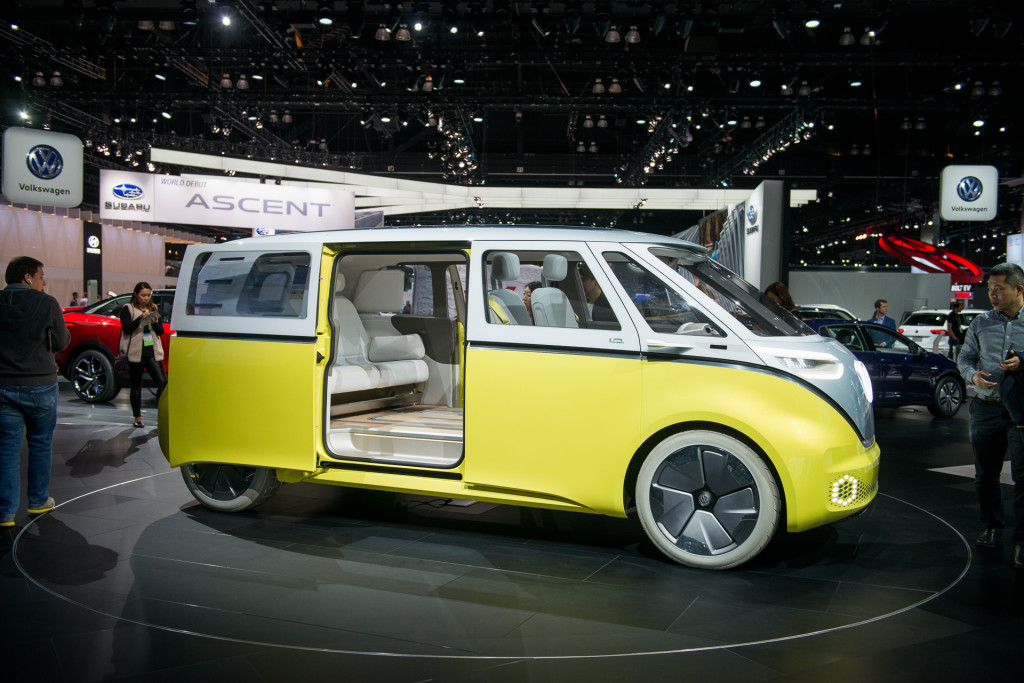Countries around the world—especially China, France, the U.K., and Norway—are aiming to phase out the sale of new fossil-fuel vehicles entirely between 2025 and 2040.
So it's in automakers' best interests to begin planning and investing now in vehicle lineups that will comply with that regulatory environment when it comes.
But the amounts of cash that will require are not trivial. In fact, they're relatively staggering.
DON'T MISS: Ford to cut engine funding by one third, invest in electrics, autonomy
In total, global automakers have earmarked more than $90 billion to develop plug-in electric vehicles, mostly for the burgeoning electric-car market in China.
Reuters collected all the publicly announced investments from automakers to come up with that $90 billion total.
Of that amount, $19 billion comes from automakers in the United States, $21 billion in China, and a remarkable $52 billion in Germany.

Volkswagen ID Buzz concept, 2017 Los Angeles auto show
However, executives from both U.S. and German automakers told the news agency most of their investments in battery-electric and plug-in hybrid vehicles will be focused on China, which is already aggressively promoting sales of electric cars.
Volkswagen, working to reinvent itself after its diesel-emission scandal in the U.S. and Europe, is the automaker with the largest planned investment so far:$50 billion.
It plans to electrify most of its 300-plus models by 2030, and will introduce its first all-new electric model in the United States by 2020.
READ MORE: VW says it needs '40 gigafactories' for electric-car batteries by 2025
The level of investment so far is outsized compared to the global electric vehicle market.
Reuters calculated that plug-in electric vehicles currently account for less than 1 percent of overall global vehicle sales, which totaled roughly 90 million last year.
While auto-company executives can read the sales stats as well as anyone else, they are not ignorant of the upcoming regulations—which they have far less power to change in China than they may under the current U.S. administration.

Teaser for Ford Mach 1 electric SUV due in 2020
“We’re all in,” Ford Motor Executive Chairman Bill Ford Jr said at the North American International Auto Show in Detroit.
“The only question is, will the customers be there with us?”
Daimler AG Chief Executive Dieter Zetsche pondered an even more dire outcome.
CHECK OUT: BMW will have 25 electric cars, plug-in hybrid models by 2025
“We will see whether demand will drive our (electric vehicle) sales or whether we will all be trying to catch the last customer out there,” Zetsche said.
“Ultimately, the customer will decide.”
_______________________________________












